The Russian scholar and independent analyst Dr. Nikolay Kozhanov shares his in-depth insight into the Russian approach towards the upcoming Moscow negotiations between P5+1 and Iran with Shirin Shafaie. Dr. Kozhanov was an attaché at the Embassy of the Russian Federation in Tehran from 2006 to 2009, where he worked on Iran's nuclear issue among other socio-economic and energy-related issues. He is currently a visiting fellow at the Washington Institute, a scholar at the nongovernmental Institute of the Middle East and a visiting lecturer at the School of Economics of the St. Petersburg State University. Dr. Kozhanov's monograph, Economic Sanctions Against Iran: Aims, Scale and Possible Consequences, was published in Moscow in June 2011. This is part 2 of 2. Read Part 1 here.
Shafaie: As a signatory to the NPT and under the IAEA Statute, Iran has an inalienable right to enrich uranium on its soil for peaceful purposes. Moreover, there has not been any shred of evidence to date suggesting that Iran has diverted any of its nuclear material to military purposes. Yet, Iran's nuclear file was reported to the UN Security Council (UNSC) in 2006 and Resolution 1696 was adopted against Iran which demands the suspension of uranium enrichment for the first time. You mentioned earlier that Russia supported the US in the UNSC in a period of amicable relations between the two. What might have been the concessions that Russia gained from the US in that period in return for support at the UNSC against Iran?
Kozhanov: Well, I am afraid that my vision of the Iranian nuclear program perspectives is slightly different from yours, but I would prefer not to go too deep into it. I also cannot call the UNSC resolutions baseless. The reasons for their adoption are clearly stated in these documents.
From my point of view, at the first turn, Iran has certain problems not with the direct accusations voiced by some countries (you are right here; so far, the Russian authorities have not received any tangible evidence from their P5+1 partners which supports their accusations against Iran), but with the issue of building confidence in the international community regarding the exclusively peaceful nature of Tehran's nuclear program. And there are certain reasons for having some doubts and suspicions. First of all, almost all the P5+1 members agree that, at a certain stage, Iran was working on a military nuclear program, and Iranian authorities have not yet answered all questions regarding this allegation. Secondly, the majority of countries which have ever had a nuclear program have also conducted parallel military studies. The latter either provided them with a nuclear arsenal or brought them to a stage where they could easily manufacture an atomic bomb if they decided to do so.
So far, there are no guaranties that Tehran will not revive (or start from the scratch) its military program, if it considers this necessary. Even Moscow is worried about this. Accordingly, in one of his interviews the Russian Deputy Foreign Minister Sergey Ryabkov stated that Russia is "concerned with the shrinking distance which separates Iran from the hypothetical possession of technologies allowing the creation of a nuclear weapon." However, and this is the third point that I would like to make here, a revival of Iran's more active cooperation with the IAEA along with Tehran's decision to agree to put its nuclear program under the complete supervision of the IAEA (which would include the implementation of the Additional Protocol) and finally clarification of all existing questions regarding the exclusively peaceful nature of its nuclear program would allay international concerns. However, the Islamic Republic persistently avoids doing so and, thus, it weakens the position of its international partners and its opponents with additional excuses. In this case, the logic of opponents is simple: if you have nothing to hide, you will have nothing to be afraid of.
As for the Russo-American dialogue on Iran, you should not think about this process as a deal made in the Tehran Grand Bazaar when one person (Russia) is selling an item (Iran) to another (the US). Since the Gore-Chernomyrdin agreement of 1995, Russia has never tried to directly trade the IRI for any concessions from the US. And it is hard to imagine that it ever will – the current political realities are different from those of the 1990s.
The influence of the Russo-American dialogue regarding the relations between Moscow and Tehran is rather complicated. Thus, it is necessary to recognise that the political elites of Russia and Iran each have different perceptions of the US; for Tehran, America is an ideological arch-enemy with whom reconciliation is a complicated question, whereas for Moscow, Washington is an important international player whose behaviour does not always correspond with Russian national interests. In this situation, Moscow is more flexible and ready to engage in a dialogue with the US so long as the American authorities demonstrate a constructive approach towards the resolution of irritations between the two countries. In other words, it is important that Americans show their readiness for an effective dialogue with Russia on any of the most glaring issues – including the deployment of antimissile systems in Eastern Europe, the presence of third powers in the Caucasus and Central Asia, the limitation of NATO's eastward advance, and the construction of oil and gas pipelines that threaten the economic interests of the Russian political elite. Such a dialogue on these issues would most likely diminish any anti-American basis for cooperation with Tehran and compel the Russians to revise their views on the Islamic Republic.
Under these circumstances, it is no surprise that, on March 26, 2012 – after President Obama signalled that Washington plans to continue the discussion of a possible win-win solution to the missile defense issue – President Medvedev declared that the level of US-Russian relations was "the highest over the last decade," and stated his readiness to cooperate in settling the tensions with Syria, Iran, and North Korea. Russo-Iranian relations are also influenced by Tehran's attempts to improve its relations with the US. Russian authorities and analysts believe that any US-Iranian rapprochement would constitute a serious threat to Russia’s own presence in Iran. As a result, any sign of such reconciliation would cause immediate intensification of dialogue between Russia and Iran. For instance, official and semi-official contacts between Washington and Tehran during 1998-2000 led to the signing of Moscow's Treaty with Iran in 2001 (i.e. the Treaty on basic principles of cooperation signed in 2001 by Presidents Vladimir Putin and Muhammad Khatami which is, now, considered as a cornerstone of the Russo-Iranian relations).
However, Russo-American relations are not the only factor influencing the dialogue between Moscow and Tehran. I have already mentioned that there is a number of cases where Russia and the IRI enjoy fruitful cooperation, and this cooperation will never allow Moscow to join the anti-Iranian camp without having very serious reasons to do so (for example, in the event of a sudden discovery of an undeclared nuclear arsenal in the IRI).
Shafaie: And do you think that Russia now regrets having voted for the UNSC resolutions which adopt binding punitive measures against Iran in the absence of "a threat to peace" determination by the Council under Chapter VII of the UN Charter? What mechanisms are in place to revert a UNSC resolution once it becomes clear that it requires extra-legal and illegitimate demands from a country?
Kozhanov: No, Russia does not regret that. As I have already explained to you Moscow's support for the UN resolutions, especially Resolution 1929 (in 2010) mainly resulted from a number of steps taken by Tehran itself. Here I am referring to the sudden disclosure of Iran's plans for building a second enrichment facility and Tehran's refusal to exchange its low-enriched uranium with nuclear fuel in October-November 2009, a proposal which was dearly supported by Russia and Tehran's decision to replace Russia with Turkey and Brazil as its main nuclear mediators with the West in May 2010. Moscow regarded this step as contrary to its national interests and its role in the region. As a result, Russia could do nothing but support the US and EU in instituting new UN measures against Iran as well as adoption of their own unilateral sanctions
On September 22, 2010, Medvedev issued Decree 1154, "On Measures to Fulfill UNSC Resolution 1929." Most of the decree's wording was based on the resolution. For instance, Russia imposed serious restrictions on the provision of banking, insurance, transit, and transport services to Iranian individuals and entities involved in the country's proliferation, nuclear, and missile activities. Targeted Iranians were also prohibited from investing in the Russian economy or acquiring Russian technologies necessary for the development of the above-mentioned programs. Russian authorities reserved the right to inspect suspicious goods transported to/from Iran and to coordinate their activities in this field with other countries. The most effective measures implemented by Moscow were related to military cooperation. Russian companies were barred from selling or transferring tanks, armoured vehicles, artillery systems, rockets, rocket systems, ships, military helicopters, and certain other aircraft to Iran. Special emphasis was placed on suspending sales of S-300 surface-to-air missile systems.
Despite the fact that Russia's sanctions only repeated passages of Resolution 1929, their implementation was a serious signal to Tehran. Previously Russia had never officially adopted any unilateral punitive measures against the Islamic Republic. At the same time, however, Moscow was not persistent in pressuring Iran and gradually softened its position. It did not implement its unilateral sanctions immediately. The Iranians were given some time to adjust their cooperation with Russia to fulfill the requirements of the UN resolutions and other punitive measures. For instance, the Moscow branch of Iran's Bank Melli was swiftly renamed "Mir Business Bank," and Tehran resumed studying the use of rubles instead of dollars/euros in bilateral trade with Russia.
Meanwhile, at the beginning of 2011, Russia resumed its attempts to settle the international dispute over Iran's nuclear program. In July of that year, the Russian Foreign Minister Sergei Lavrov offered Iran and the P5+1 a phased plan of actions that would allow gradual settlement of the issue. This initiative was cautiously accepted by the West and warmly welcomed by Iran. Although the proposal was not put into action, Moscow continued to support Iran and the West towards the initiation of a new round of dialogues. Moreover, Tehran has recently voiced its interest in returning to Lavrov's initiative.
All in all, Russia is following one main principle – as soon as the international concerns on Iran's nuclear program are resolved, it will be a high time to revise the UNSC resolutions. However, the main problem for Iran is currently not the UN sanctions (the mechanism of their cancelation is clear – just have a look at the similar cases in the Security Council), but unilateral punitive measures whose revision solely depends on the political will of the countries who have adopted them.
Shafaie: Speaking of international concerns over the issue of nuclear-proliferation in the Middle East, can you tell me about Russia's stance on the sole nuclear-armed entity in this region? Does Russia ever press Israel to join the NPT as a Non-Nuclear-Weapon State to allow a Middle East Nuclear Weapon Free Zone to come into being?
Kozhanov: Russia completely supports the idea of the creation of a Nuclear Weapon Free Zone in the Middle East. And that is where the Russian position is extremely close to the position of Iran. Moscow is also extremely persistent and active in persuading both regional and non-regional countries to accept the necessity of the practical implementation of this plan. However, I feel that I do not have enough information to discuss in which way this issue is raised in the Russo-Israel dialogue. I believe that if it has not been raised yet, it will be definitely discussed in the future. At the same time, I would not be expecting Israel to be "pressed" by Moscow. I believe that Russian diplomacy will be more flexible. As in the case of Iran, the nuclear issue is overshadowed by other items of interest in the Russo-Israel dialogue.
Shafaie: Finally, how would you predict the outcome of the Moscow Talks? Could there be an optimal solution for all sides?
Kozhanov: As I have previously mentioned, the Russians believe that Iran should make the first practical step towards the P5+1 group. Accordingly, during the recent SCO Summit, Russia offered an incentive to the Iranian authorities. President Putin stated that the international community should allow Tehran to develop its peaceful nuclear program including its uranium enrichment program under the complete supervision of the IAEA. However, the remaining big question is whether Iran actually believes that Russians truly want this and whether the other (at least the European) P5+1 members support this initiative or not.
Apart from this, as stated by the prominent Russian expert Vladimir Sazhin, it is necessary to take into account the domestic situation in the US and IRI as well when thinking about the outcome of Moscow Talks. Both countries are expected to hold their presidential elections in the near future (the US in 2012 and Iran in 2013), and the room for maneuver is seriously limited for their political leaders. Any initiating action can improve the chances of their political opponents (Ahmadinejad is not supposed to run for elections, but he will probably try to squeeze his protégé into the presidential position). As a result, Sazhin believes that the authorities of each country will probably try to maintain the status quo until 2013. In this situation, no breakthrough in Moscow is expected, although the Russians presumably will try hard to achieve it.
Shafaie: Dr. Kozhanov, thank you very much for sharing your insight with us.
With special thanks to Mr Ignaty Dyakov for arranging this interview.
The views expressed in this article are the author's own and do not necessarily reflect Fair Observer's editorial policy.
Support Fair Observer
We rely on your support for our independence, diversity and quality.
For more than 10 years, Fair Observer has been free, fair and independent. No billionaire owns us, no advertisers control us. We are a reader-supported nonprofit. Unlike many other publications, we keep our content free for readers regardless of where they live or whether they can afford to pay. We have no paywalls and no ads.
In the post-truth era of fake news, echo chambers and filter bubbles, we publish a plurality of perspectives from around the world. Anyone can publish with us, but everyone goes through a rigorous editorial process. So, you get fact-checked, well-reasoned content instead of noise.
We publish 2,500+ voices from 90+ countries. We also conduct education and training programs
on subjects ranging from digital media and journalism to writing and critical thinking. This
doesn’t come cheap. Servers, editors, trainers and web developers cost
money.
Please consider supporting us on a regular basis as a recurring donor or a
sustaining member.
Will you support FO’s journalism?
We rely on your support for our independence, diversity and quality.


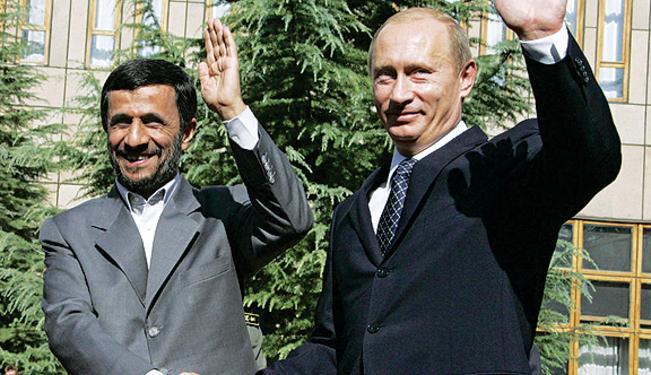
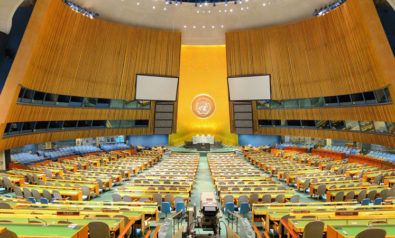



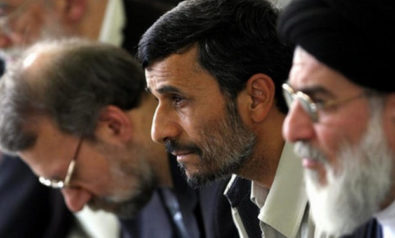

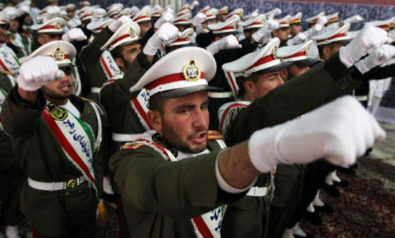





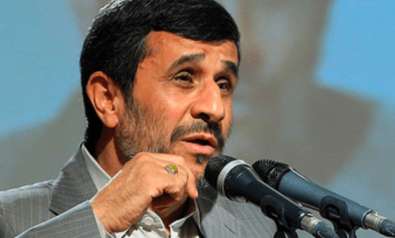



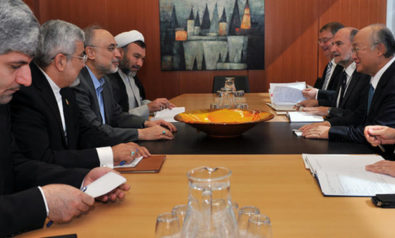

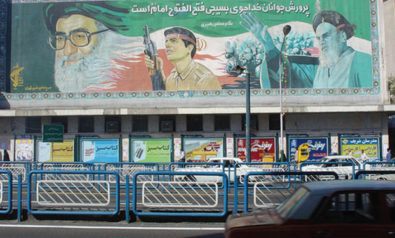



Comment